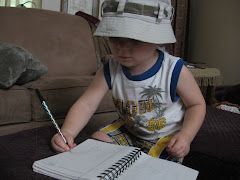Young Adult (YA) fiction published during the year has the opportunity to win several awards offered annually. My favorite award is the Michael L. Printz Award for Excellence in Young Adult Literature. Given by the Young Adult Library Services Association (YALSA), a division of the American Library Association (ALA), the Printz award was first presented in January 2000. The award is given to the best YA book of the year. So who gets to decide “best”? It’s a lengthy and complicated process, but the winners are chosen by librarians and teachers/professors strictly in terms of literary merit, not popularity with teens. In other words, adults choose the winners based on the significance of its cultural value – its artistry, depth, ability to stand the test of time. There are as many ways to define “literary merit” as there are librarians and English teachers, and that is a complicated discussion for another forum. Let’s get back to the Printz Award.
I like the award because of the books that have been chosen to represent it. I personally find that I like the books that are chosen and the four or fewer honor books that are the runners up each year. They are definitely well written in an artistic sense and most would classify them as good literature. However, the Printz award comes under fire for being inaccessible to the Young Adults for whom they were supposedly written. Even though popularity is not a consideration, I find that my students like them for the most part, too. The characters are well-rounded, the plot lines are engaging and complex, the themes are universal. As with any book, Printz award winners and honor books must be matched to the student. Not all students will appreciate the complexities of some of the books which have received the award, but isn’t that true for all books? Not everyone will find them to be their cup of tea. For more information on the Printz Award, visit the YALSA website:
http://www.ala.org/yalsa/printz
These are Printz award winners and honor books that appeal to a large portion of the high school population that I teach. They are always at the top of my recommendation list to both boys and girls.
Monster by Walter Dean Myers, 2000 Printz winner (the first book honored with the Printz award; also a National Book Award winner, and the Coretta Scott King Award honor book)
Steve Harmon is arrested and put on trial for murder. During his trial, Steve, an aspiring screen writer, records the details of the trial as a screenplay. Interspersed between the scenes, Steve’s handwritten journal details the horrors of being in jail. This book is great because it appeals to boys, and students who read this novel often say they feel like they were there with Steve. When they reach the end, young adult readers almost always need and want to talk about it. Some ambiguity in the ending leaves them needing interaction on the book. And isn’t that a great thing? Students who read this in a “book club” environment love the discussion.
Speak by Laurie Halse Anderson, 2000 Printz honor book
Melinda is at a party right before her 9th grade year starts. Unfortunately, a serious incident at the party has her calling 911 which results in a swarm of police. When students discover that it is Melinda who called the cops, she is ostracized while having to also deal with the emotional ramifications of the incident. In the midst of this turmoil, Melinda simply decides to quit speaking – to anyone. The only one who seems to have a way to help her is her art teacher, who helps her find her voice by channeling her emotions through drawing. The climax of the story comes at the end of the year when the truth of what happened at the party is finally revealed. My girls love this book, but boys who have been willing to give it a try enjoy it too. Check out Ms. Anderson’s website for a poem she wrote using lines sent to her by male and female readers of Speak who had had similar experiences to Melinda’s. She reads the poem in the video at the right side of the page, and a print copy is in the Teacher’s Section under the video. Powerful stuff. Very powerful.
http://madwomanintheforest.com/youngadult-speak
The Book Thief by Markus Zusak, 2007 Printz honor book
My school district uses The Diary of Anne Frank in 8th grade English as required reading. Most of my students say they enjoyed it and the study of World War II and the Holocaust. For that reason, The Book Thief is a good choice for many of them. Narrated by Death, it is the story of Liesel Meminger who lives during the rise of Hitler. Generally an obedient girl, Liesel can’t seem to stop herself from stealing when her favorite object is involved – books. With the anxiety growing over the rise of the Nazis, observations made by both Liesel and Death bring a fresh perspective not only on the historical period, but also emphasize the power of the written word.
Sneak Peek list of Poetry for Young People 2026
2 weeks ago





No comments:
Post a Comment